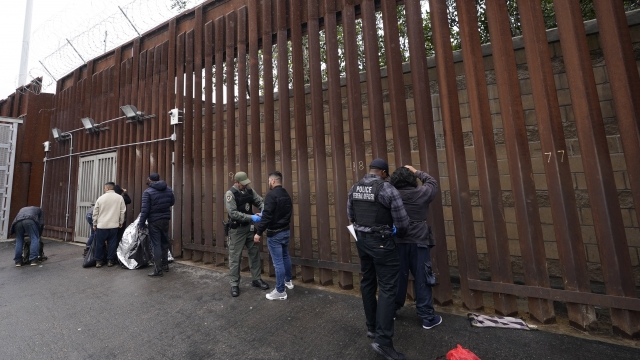A nearly 2,000 mile border separates Mexico and the U.S., but a bilateral relationship unites the countries. Mexico is a top travel destination for Americans and our second biggest trade partner, according to the U.S. State Department.
But the partnership has a cartel-related cloud lingering over it. Mexico’s cartel activity has been on the rise since the 2000’s but only recently have U.S. lawmakers had the groups in their crosshairs. The increased spotlight came on the heels of an incident resulting in the deaths of two Americans in Mexico.
The U.S. response gained a harsh reaction from Mexican President Andres Manuel Lopez Obrador, who called Mexico safer than the U.S.
But the numbers don’t support his claim. 2020 data from the Mexican government had Mexico’s murder rate four times higher than that of the United States.
And the friction came only months after Obrador met with Canadian Prime Minister Justin Trudeau and President Joe Biden, vowing to work together to curb drug activity and violence.
But what's powering the growth of Mexican cartels? Experts say they are powered financially by the drug trade, as they meet the supply needs of America's drug demands.
Jerry Robinette, a retired special agent for Homeland Security Investigations, says the cartels foster corruption by bribing Mexican police, judges and elected officials.
SEE MORE: Why is gang activity increasing?
"The abilities of the cartels to get to the point that they’re at today is really because of the amount of drugs that we consume here in the United States," Robinette said. "There used to be a time when the cartels had to work with the law enforcement, and had to coordinate with law enforcement, had to get permission, had to have some sort of coordination. It's just the opposite. Now, the governments have to coordinate with these cartels as to what they can or can't do in this region."
And the growth of the organizations has made its way into the U.S. A 2020 DEA map shows where different Mexican cartels have influence on American soil.
Sheriff Kieran Donahue leads the Canyon County sheriff’s department in Idaho.
"We are literally under siege. This is an incredibly dynamic, fluid, and terrifying situation in the United States. It is. And I mean, across the United States, not any particular state," Donahue said.
He says his small Idaho jurisdiction is seeing cartel chaos.
"And we're dealing with the overdose deaths. We're dealing with the violence that the drug trade promotes and creates. And we're dealing with the cartels themselves, the stash houses, the laundering of money through different businesses," Donahue said.
Many of those deaths are a result of cartel-produced fentanyl. The synthetic drugs are made by so-called "cooks" in Mexico, then smuggled into the U.S. where American-based cartel groups proceed to distribute to big cities and rural towns.
"My local team just took off last week, 19,900 fentanyl pills in one search, and three and a half pounds of methamphetamine. That's one guy, one gang member," Donahue said.
SEE MORE: White House announces new actions against fentanyl supply chain
And the issue is exacerbated by breaches along the northern border.
"What's become incredibly significant ... is our northern border. The longest border in the world is our northern border with Canada. Incredibly porous. We do not have the resources. They do not have the resources," Donahue said.
The sheriff suggests responding with military-style action.
"These are powerful, powerful people. And they have military intelligence. They have military weapons. They have military equipment. They operate as a paramilitary organization," Donahue said.
That rhetoric is gaining support. Last March the Drug Cartel Terrorist Designation Act was introduced. It was referred to the Committee on Foreign Relations.
And Senator Lindsey Graham sponsored the Narcos Act, which was referred to the Select Commitee on Intelligence.
"We’re gonna introduce an authorization to use military force where the United States military can go in and destroy these labs and destroy these wonderful networks if possible," Graham said.
Mexican President Andres Manuel Lopez Obrador has dismissed the calls by U.S. lawmakers, saying, "We are not going to permit any foreign government to intervene in our territory, much less a foreign government’s armed forces."
Trending stories at Scrippsnews.com



